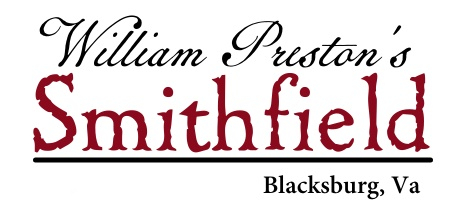Dining Room
In this space, the Prestons dined with their family and their guests and were served by enslaved individuals. During the course of meals and meetings, conversations about current events in the country and ideas about what it means to have freedom and liberty were had in this room.
Smithfield existed before America won its independence and became free from British rule and Preston family members, including William Preston himself served in the Revolutionary War. Smithfield existed during the Civil War and the Preston family would have had conversations about what it might mean for the future of their plantation and their known way of life, if slavery was outlawed and if the south seceded.
In addition to the Upper Landing, this room helps to represent the juxtaposition of the enslaved vs. the slave owners experience. Enslaved individuals were physically present for all of these conversations, but they were never included in the discussion; they were never offered the same rights and freedoms as those being discussed.
This room helps demonstrate that history and people are complicated. An example of this is Preston’s grandson, William Ballard Preston, known as Ballard. William Ballard Preston (1805-1862) inherited Smithfield from his father, James Patton Preston and would go on to live there with his family as an adult. While serving in the Virginia House of Delegates in the 1831-1832 session, Ballard argued for the abolition of slavery. While Ballard may have opposed slavery at the time, he continued to own enslaved people on this site. Thirty years later, Ballard traveled to Washington, D.C. with a delegation hoping to prevent the Civil War. The delegation met with Abraham Lincoln on April 12, 1861 without success.
After Fort Sumter fell, Ballard delivered the Virginia Articles of Secession to the Secession Convention. These articles, passed on April 17, 1861, cited the Federal Government’s “oppression of the Southern slaveholding States” as the reason for leaving the Union. Ballard was a founder of the Olin and Preston Institute, which later became Virginia Tech.
